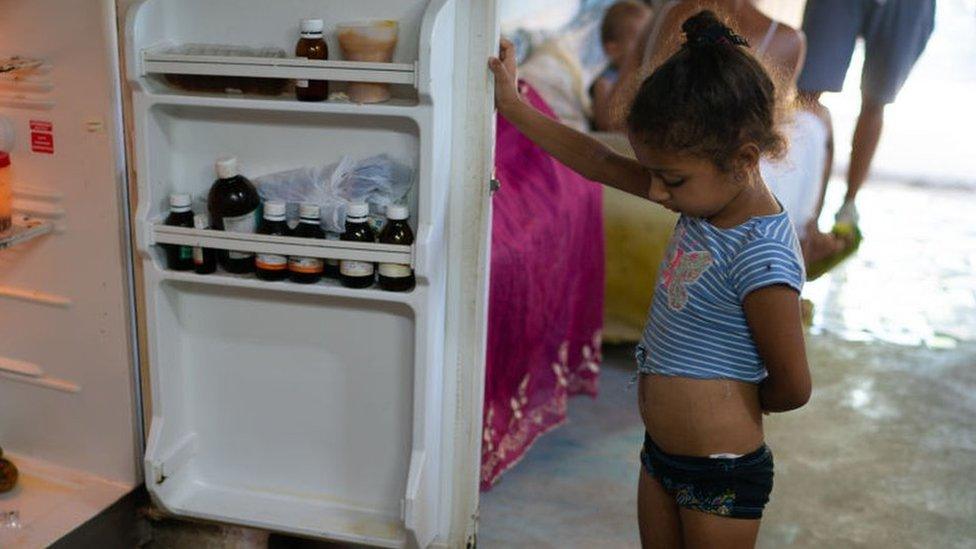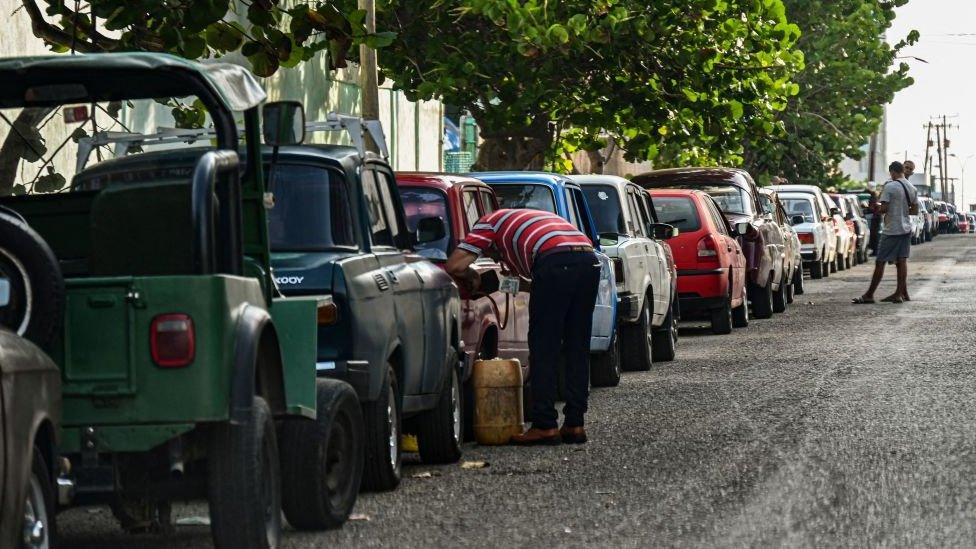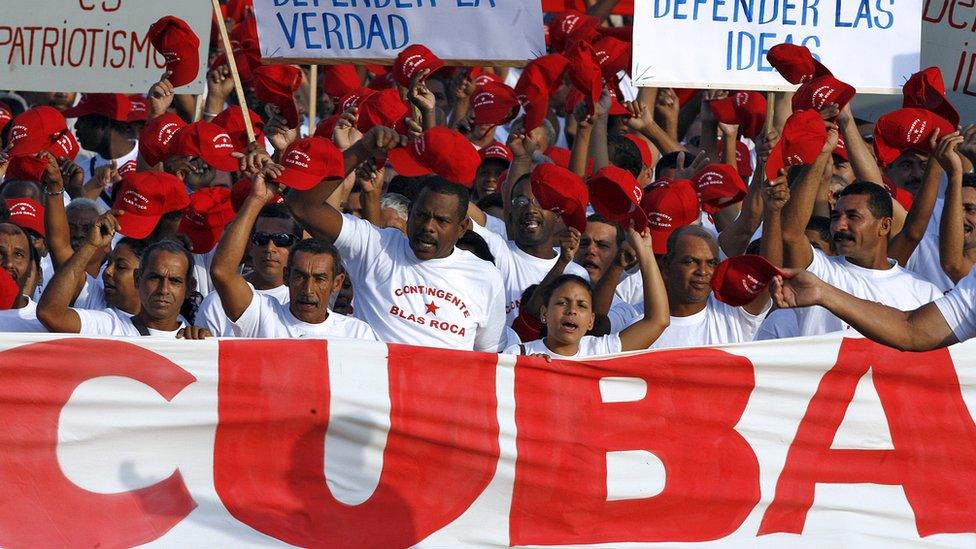Cuba asks UN for help as food shortages worsen
- Published

Many Cubans struggle to get hold of milk and even children who are entitled to the subsidised rations have been going without
Cuba's government has for the first time asked the UN's food programme for help as food shortages on the Communist-run island worsen.
The World Food Programme (WFP) said it had received an unprecedented official request from the Cuban government for help providing powdered milk to children under seven years of age.
The request is a sign of the seriousness of Cuba's economic crisis.
As well as a shortage of milk, fuel and medicines are also running low.
The WFP confirmed to Spanish news agency Efe that it been approached by the Cuban government to "continue the monthly delivery of 1kg [35oz] of milk for girls and boys under the age of seven throughout the country".
The WFP said it had already started delivering milk powder to the island.
Powdered milk and other basic foods are provided to Cubans at a subsidised price through ration books, but delays and lack of supplies are common, especially at times of economic hardship.
The system was first introduced in 1962 by Cuban leader Fidel Castro after the United States imposed sanctions on the island, which exacerbated shortages.
The Cuban government continues to blame the ongoing US sanctions for the dire state of its economy but critics say government mismanagement is behind the current economic crisis - the worst in three decades.
Last year, Vice-Prime Minister Jorge Luis Tapia Fonseca did concede that progress in making Cuba more self-sufficient was lagging and blamed Cuban workers, whom he said lacked a "culture of productivity".
"Work is needed to produce food. We all expect to be sent food, but we do nothing to produce it," he said in July.
Shortages of milk have become worse since, with interior commerce minister Betsy Díaz warning earlier this month that deliveries for children aged between six months and two years had been delayed.
She said that the government was "working daily to find alternatives".
Milk is not the only thing Cubans are struggling to get hold of. A shortage of fuel led to the annual May Day parade - arguably the biggest annual mass celebration on the island - being postponed last year, and other celebrations scaled back.
And from Friday, the fuel that is available will cost five times as much as a price hike comes into effect.
Related topics
- Published9 January 2024

- Published30 April 2023
